Arnold Fanck
출생 : 1889-03-06, Frankenthal, Germany
사망 : 1974-09-28

Writer

Director

Editor
At the invitation of the Japanese Ministry of Education, the former “mountain filmer” Fanck directed this “cultural feature film” with Japanese actors in Japan, making this the first, German-Japanese co-production. The young Japanese man Teruo gets caught up in a conflict between tradition and modernism, when he returns to Japan from Germany after having spent a number of years there studying. Now, he is supposed to marry Mitsuko, the daughter of his adoptive father, to whom Teruo has long been promised. But Teruo, who has gotten to know the freedoms of the western world, would rather marry the woman he loves and behaves brusquely to Mitsuko.

Producer
At the invitation of the Japanese Ministry of Education, the former “mountain filmer” Fanck directed this “cultural feature film” with Japanese actors in Japan, making this the first, German-Japanese co-production. The young Japanese man Teruo gets caught up in a conflict between tradition and modernism, when he returns to Japan from Germany after having spent a number of years there studying. Now, he is supposed to marry Mitsuko, the daughter of his adoptive father, to whom Teruo has long been promised. But Teruo, who has gotten to know the freedoms of the western world, would rather marry the woman he loves and behaves brusquely to Mitsuko.

Screenplay
At the invitation of the Japanese Ministry of Education, the former “mountain filmer” Fanck directed this “cultural feature film” with Japanese actors in Japan, making this the first, German-Japanese co-production. The young Japanese man Teruo gets caught up in a conflict between tradition and modernism, when he returns to Japan from Germany after having spent a number of years there studying. Now, he is supposed to marry Mitsuko, the daughter of his adoptive father, to whom Teruo has long been promised. But Teruo, who has gotten to know the freedoms of the western world, would rather marry the woman he loves and behaves brusquely to Mitsuko.

Director
At the invitation of the Japanese Ministry of Education, the former “mountain filmer” Fanck directed this “cultural feature film” with Japanese actors in Japan, making this the first, German-Japanese co-production. The young Japanese man Teruo gets caught up in a conflict between tradition and modernism, when he returns to Japan from Germany after having spent a number of years there studying. Now, he is supposed to marry Mitsuko, the daughter of his adoptive father, to whom Teruo has long been promised. But Teruo, who has gotten to know the freedoms of the western world, would rather marry the woman he loves and behaves brusquely to Mitsuko.

Director

Writer

Director
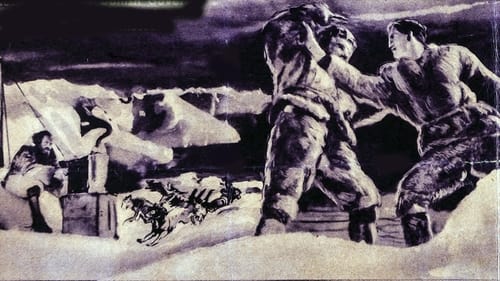
Story
An expedition goes in search of a party lost in the Arctic the year before. This is the English language version of the German film S.O.S. Eisberg (1933), made at the same time but with a slightly different cast and released later that year. The German film is approximately 10 minutes longer.

Director
An expedition goes in search of a party lost in the Arctic the year before. The English language version of this German film was made at the same time but with a slightly different cast and released later that year as S.O.S. Iceberg, directed by Tay Garnett.

Writer
An expedition goes in search of a party lost in the Arctic the year before. The English language version of this German film was made at the same time but with a slightly different cast and released later that year as S.O.S. Iceberg, directed by Tay Garnett.

Story
A romantic comedy mostly set on skis: a girl tries to show her boyfriend that she is just as good at winter sports, and gets help from two other boys.

Writer
Leni, a daring young girl, is visiting for the second time a ski-resort. The local ski-teachers agree to organize a "fox-hunt" for her. Leni and Hannes are "the foxes", and about 40 other skiers will have to catch them, starting with a 15 minutes delay. It's not the story that makes this film, but the extremely spectacular, thrilling shots about skiing.

Director
Leni, a daring young girl, is visiting for the second time a ski-resort. The local ski-teachers agree to organize a "fox-hunt" for her. Leni and Hannes are "the foxes", and about 40 other skiers will have to catch them, starting with a 15 minutes delay. It's not the story that makes this film, but the extremely spectacular, thrilling shots about skiing.
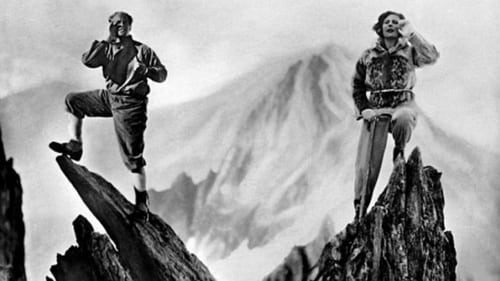
Writer
In a lonely outpost atop the treacherous Mont Blanc, an intrepid scientist lives with minimal connection to the world below. Through the telegraph, Hanes (Sepp Rist) communicates with a beautiful astronomer (Leni Riefenstahl) and is occasionally visited by an airplane pilot (Ernst Udet) upon whom he depends on supplies. In the midst of a ferocious snowstorm, Hannes loses his gloves and his weather station is battered by the elements. Suffering frostbite and unable to descend the mountain, he sends out a desperate S.O.S. in the hope that someone can brave the elements and rescue him from certain death. Eerily romantic and overshadowed by the constant threat of doom, Storm over Mont Blanc is a "quintessential " mountain film by Arnold Fanck, the genre's innovator and unparalleled master.

Director
In a lonely outpost atop the treacherous Mont Blanc, an intrepid scientist lives with minimal connection to the world below. Through the telegraph, Hanes (Sepp Rist) communicates with a beautiful astronomer (Leni Riefenstahl) and is occasionally visited by an airplane pilot (Ernst Udet) upon whom he depends on supplies. In the midst of a ferocious snowstorm, Hannes loses his gloves and his weather station is battered by the elements. Suffering frostbite and unable to descend the mountain, he sends out a desperate S.O.S. in the hope that someone can brave the elements and rescue him from certain death. Eerily romantic and overshadowed by the constant threat of doom, Storm over Mont Blanc is a "quintessential " mountain film by Arnold Fanck, the genre's innovator and unparalleled master.

Writer
Dr. Johannes Krafft climbs a 12,000-foot mountain over and over again to search for his wife, who was lost on their honeymoon. Another couple makes the dangerous climb with him.

Director
Dr. Johannes Krafft climbs a 12,000-foot mountain over and over again to search for his wife, who was lost on their honeymoon. Another couple makes the dangerous climb with him.

Writer
Struggle for the Matterhorn (German: Der Kampf ums Matterhorn) is a 1928 German-Swiss silent drama film co-directed by Mario Bonnard and Nunzio Malasomma and starring Luis Trenker, Marcella Albani, and Alexandra Schmitt. The film is part of the popular cycle of mountain films of the 1920s and 1930s. Art direction was by Heinrich Richter. Based on a novel by Carl Haensel, the film depicts the battle between British and Italian climbers to be the first to climb the Matterhorn. Trenker later remade the film as The Challenge in 1938.
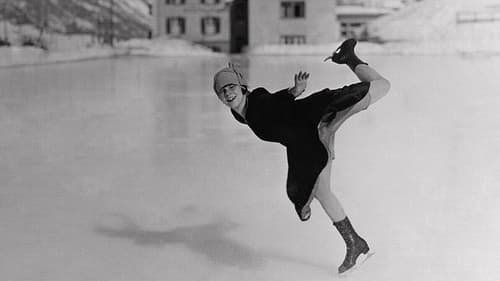
Editor
A profile of the 1928 Olympic Games in St. Moritz, Switzerland.

Director
A profile of the 1928 Olympic Games in St. Moritz, Switzerland.
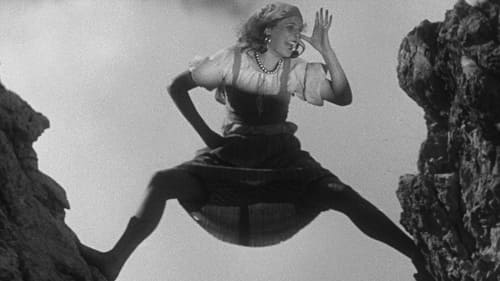
Writer
A young Italian girl living in the Dolomites falls in love with a member of a tourist party skiing on the nearby mountains.

Director
A young Italian girl living in the Dolomites falls in love with a member of a tourist party skiing on the nearby mountains.
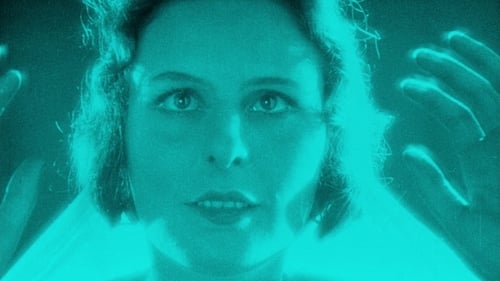
Editor
Professional dancer Diotima finds herself the apex of a love triangle when she is pursued by two mountain climbers, Vigo and his unnamed older friend.

Writer
Professional dancer Diotima finds herself the apex of a love triangle when she is pursued by two mountain climbers, Vigo and his unnamed older friend.

Director
Professional dancer Diotima finds herself the apex of a love triangle when she is pursued by two mountain climbers, Vigo and his unnamed older friend.

Director
The cloud phenomena of Maloja are so well-known that some of them have names, such as the Maloja snake, a cloud bank that winds its way through the Alpine pass like a river. Clouds pass overhead, Fanck films them, just sufficiently to get the idea, among the crags of the Engadine, and gradually he connotes the wider scene, peopling the solitude and stillness below with a person or two, boating.

Cinematography
After a mountaineer is killed attempting to climb a difficult mountain, his son dreams of conquering the peak that has defeated his father. But his mother makes him promise never to attempt it. Events eventually force her to release him from the promise, and he ascends the mountain successfully.

Producer
After a mountaineer is killed attempting to climb a difficult mountain, his son dreams of conquering the peak that has defeated his father. But his mother makes him promise never to attempt it. Events eventually force her to release him from the promise, and he ascends the mountain successfully.

Editor
After a mountaineer is killed attempting to climb a difficult mountain, his son dreams of conquering the peak that has defeated his father. But his mother makes him promise never to attempt it. Events eventually force her to release him from the promise, and he ascends the mountain successfully.

Writer
After a mountaineer is killed attempting to climb a difficult mountain, his son dreams of conquering the peak that has defeated his father. But his mother makes him promise never to attempt it. Events eventually force her to release him from the promise, and he ascends the mountain successfully.

Director
After a mountaineer is killed attempting to climb a difficult mountain, his son dreams of conquering the peak that has defeated his father. But his mother makes him promise never to attempt it. Events eventually force her to release him from the promise, and he ascends the mountain successfully.

Screenplay

Director

Director
IM KAMPF MIT DEM BERGE: IN STURM UND EIS, a mountain-and-snow adventure film directed by his friend Arnold Fanck in 1920.

Producer
The released version of the championship boxing match between Jack Dempsey vs Georges Carpentier from July 2, 1921.

A documentary about skiing at the beginning of the century.

Director
A documentary about skiing at the beginning of the century.

Director


























